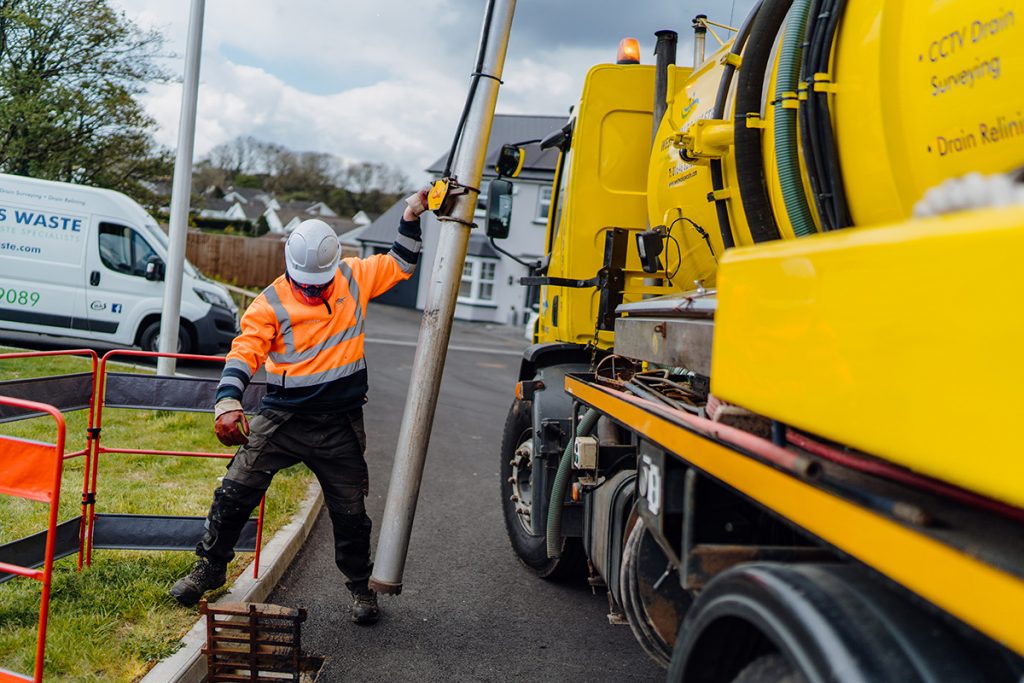Interceptors, also known as grease traps or oil separators, play a crucial role in protecting our environment by preventing pollutants, oils, and debris from entering the water systems and natural surroundings. However, to function effectively, interceptors require regular maintenance and cleaning. At West Wales Waste, we understand the significance of this process and are committed to providing top-notch interceptor cleaning services. In this blog post, we will explore why regular interceptor cleaning is essential and provide insights on how to determine interceptor ownership on your street.
Environmental Protection
One of the primary reasons for regular interceptor cleaning is environmental protection. Interceptors are designed to trap harmful substances such as oils, grease, and solid waste that can otherwise pollute waterways and harm wildlife. Over time, these substances accumulate, reducing the interceptor’s efficiency. Without regular cleaning, the trapped pollutants can overflow and enter the water systems, causing significant environmental damage. By ensuring your interceptor is regularly cleaned, you contribute to preserving the local ecosystem and maintaining cleaner water sources.
Compliance with Regulations
Regular interceptor cleaning is not just a matter of environmental responsibility; it is often a legal requirement. Local authorities and environmental agencies have strict regulations in place to ensure that interceptors are maintained correctly to prevent pollution. Failure to comply with these regulations can result in hefty fines and legal consequences. West Wales Waste stays up-to-date with all relevant legislation, ensuring that our services help you meet compliance standards and avoid any regulatory issues.
Cost Savings
Neglecting interceptor maintenance can lead to severe and costly problems. Blockages and overflows caused by accumulated waste can damage the interceptor and the surrounding infrastructure. Repairing or replacing a damaged interceptor is far more expensive than routine cleaning and maintenance. Regular cleaning ensures that the interceptor operates efficiently, preventing blockages and reducing the risk of costly repairs. Additionally, a well-maintained interceptor can have a longer lifespan, providing better value for your investment.
Finding Out Who Owns Which Interceptor on Your Street
Understanding who is responsible for maintaining the interceptors on your street is crucial for ensuring they are properly serviced. Here are some steps to help you determine interceptor ownership:
- Check Property Deeds and Plans: Property deeds and building plans often indicate the presence of interceptors and their ownership. These documents can be obtained from your local land registry or municipal office.
- Contact Your Local Council: Local councils usually have records of interceptors within their jurisdiction. They can provide information on interceptor locations and responsible parties.
- Consult with Neighbors: Sometimes, neighbouring properties share an interceptor. Speaking with your neighbours can help clarify ownership and responsibilities.
- Hire a Professional Surveyor: If you are still unsure, a professional surveyor can inspect the property and identify interceptor ownership. This can be particularly useful for businesses and commercial properties.
Conclusion
Regular interceptor cleaning is essential for protecting the environment, complying with regulations, and saving costs. At West Wales Waste, we offer expert interceptor cleaning services to ensure your interceptors are functioning efficiently and effectively. Understanding who owns which interceptor on your street is a vital step in maintaining these crucial systems. By taking proactive measures, you can ensure the continued protection of your local environment and avoid potential legal and financial issues.
Contact West Wales Waste today for all your interceptor cleaning needs and benefit from our professional and reliable services.


